- Learning time
- 20 minutes
- First play time
- 120 minutes
Above and Below
Designed by: Ryan Laukat
The story of Above and Below is that you and a small group of compatriots have been exiled, and have found pastures new in which to make a fresh start. You soon discover, however, that your new home harbours a secret; an intricate network of caves and caverns that you can explore and colonise along with the top side. Throughout the game you will build new buildings, acquire new colonists, and stockpile a variety of goods through harvesting and adventuring. At the end of a set number of rounds, the achievements of your new settlement will be judged against the other players, and the player with the most points wins.
How this all works in practice is fairly straightforward. You start the game with three people and one building, which simply has three beds. On each of the games 7 rounds, players take turns using one or more people to perform certain tasks; build a new building, teach a new person, harvest goods, labour (collect money), or go adventuring. Adventuring is the action that steers things into unusual territory – both figuratively and literally. You need to use at least two of your folk to go adventuring; you pick a cavern card and roll a die, comparing the roll to numbers on the card. This will produce a page reference from the book of adventures – another player will read you a description of what you have discovered, which will probably end in a choice. You might find treasure belonging to a troll – do you steal it from under his nose, or carry on exploring. Your choice will need to be backed up by some dice-rolling, the success of which will depend on the particular people you’ve taken adventuring (some are better at certain things). If you’re successful or partially so, you’ll receive a range of rewards, and have discovered a new underground cavern on which to build. If you fail, you’ll be going home empty-handed. Your choices can also affect your reputation, which can score or lose you points at the end of the game.
After each round, all your people will be exhausted, and need a bed (or cider!) to refresh them for use in the next round. Some who’ve been sent adventuring may even be injured, and will need a potion or bed just to be exhausted. So you’ll need to manage their recovery to ensure that you have the maximum number of actions on subsequent turns, by building more beds and accruing cider and potions.
At the end of seven rounds you’ll get points for all your buildings (many of which will also provide extra points), and for your reputation (this is affected by your choices made whilst adventuring, giving the game a hint of morality). But you’ll also get points for all the goods you’ve harvested during the game. Goods harvested are placed on a track on your player board, in any order you want. You might put fruit in slot one, another player might use their slot one for fish and put fruit in slot two. The later slots (ie the greater number of different goods you produce) score more points, so diversifying is good. It sounds fiddly but in play it’s quite straightforward, and makes for an interesting angle on scoring.
Joe says
Above and Below makes me think of a few other games: the worker placement and harvesting is a bit like Agricola, and the choose-your-own-adventure element is reminiscent of Tales of the Arabian Nights. For me though, it slightly lacks the spark of either of those two - it's a pleasant enough experience, but maybe a little bland for the grizzled, seasoned gamer in me. I thought it might go down well with my younger daughters (11,14), as they're not terribly competitive, and enjoy Tales; but they found the gameplay a little too fiddly, and the scoring a bit opaque.
The guru's verdict
-
Take That!
Take That!
Above and Below is a relatively gentle game, with no direct interaction and certainly no confrontational gameplay.
-
Fidget Factor!
Fidget Factor!
Players alternate performing actions so most turns are quick, although if one player has more people available, they'll continue playing once everyone else has finished their turn. Adventuring takes a little longer, but another player gets to read the story, which is engaging.
-
Brain Burn!
Brain Burn!
Calculating scores at the end involves quite a few different factors. It's not hard to add up, but it will take a few games to become familiar with all available scoring opportunities.
-
Again Again!
Again Again!
It will take a good few games to exhaust the book of tales, and it's not a huge issue hearing the same adventure more than once in any case. If you like the game there are plenty of variables to keep the gameplay fresh.

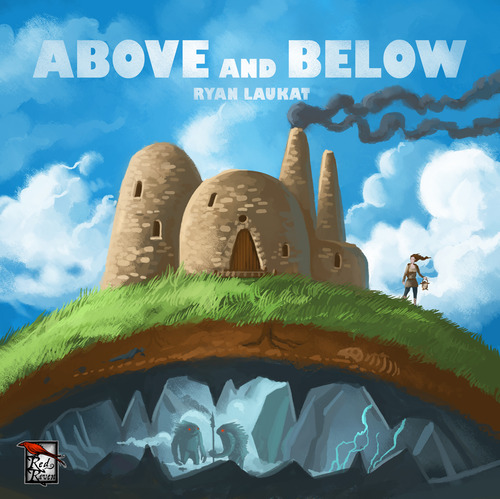
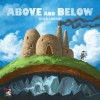
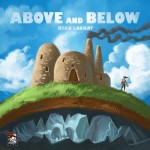


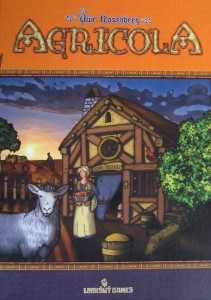
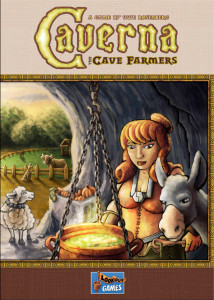
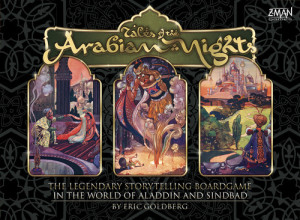
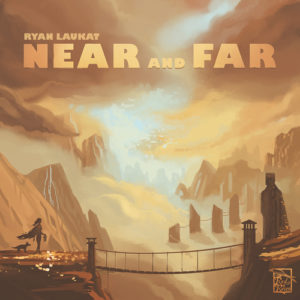
Sam says
I've not yet played Above and Below, but as a fan of this designer's Near and Far, I am intrigued to do so.